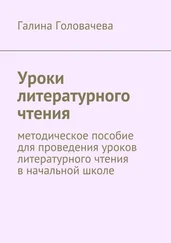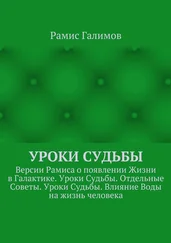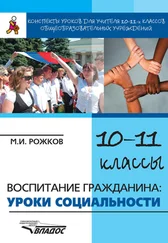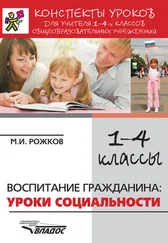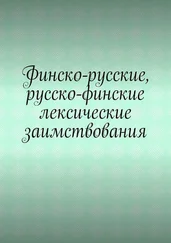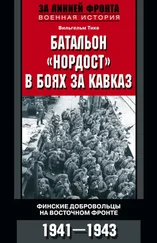Popham, J. (2007). The no-win accountability game // C. Glickman (Ed.), Letters to the next president. What we can do about the real crisis in public education (pp. 166–173). New York: Teachers College Press.
Prais, S. J. (2003). Cautions on OECD’s recent educational survey (PISA). Oxford Review of Education, 29(2), 139–163.
Prais, S. J. (2004). Cautions on OECD’s recent educational survey (PISA): Rejoinder to OECD’s response. Oxford Review of Education, 30(4), 569–573.
Ravitch, D. (2010a, June 22). Obama’s awful education plan. Huffington Post. http://www.huffingtonpost.com/diane-ravitch/obamas-awful-education-pl-b-266412.html
Ravitch, D. (2010b, July 6). Speech to the Representative Assembly of the National Education Association, New Orleans, LA.
Ravitch, D. (2010c). The death and life of the great American school system. How testing and choice are undermining education. New York: Basic Books.
Riley, K., Torrance, H. (2003). Big change question: As national policy-makers seek to find solutions to national education issues, do international comparisons such as TIMSS and PISA create a wider understanding, or do they serve to promote the orthodoxies of international agencies? Journal of Educational Change, 4(4), 419–425.
Rinne, R., Kivirauma, J., Simola, H. (2002). Shoots of revisionist education policy or just slow readjustment? Journal of Education Policy, 17(6), 643–659.
Robinson, K. (2009). The Element: How finding your passion changes everything. New York: Viking Books.
Robitaille, D. R, Garden, R. A. (Eds.) (1989). The IEA study of mathematics II: Context and outcomes of school mathematics. Oxford: Pergamon Press.
Routti, J., Ylä-Anttila, P. (2006). Finland as a knowledge economy. Elements of success and lessons learned. Washington, DC: World Bank.
Saari, J. (2006). Suomen mallin institutionaalinen rakenne [The institutional structure of the Finnish model] // J. Saari (Ed.), Suomen malli — Murroksesta menestykseen? [The Finnish model — From reformation to success]. Helsinki: Yliopistopaino.
Saari, S., Frimodig, M. (Eds.). (2009). Leadership and management of education. Evaluation of education at the University of Helsinki 2007–2008. Administrative Publications 58. Helsinki: University of Helsinki.
Sahlberg, P. (2006a). Education reform for raising economic competitiveness. Journal of Educational Change, 7(4), 259–287.
Sahlberg, P. (2006b). Raising the bar: How Finland responds to the dual challenge of secondary education? Profesorado, 10(1), 1–26.
Sahlberg, P. (2007). Education policies for raising student learning: The Finnish approach. Journal of Education Policy, 22(2), 173–197.
Sahlberg, P. (2009). Ideat, innovaatiot ja investoinnit koulun kehittämisessä [Ideas, innovation and investment in school improvement] // M. Suortamo, H., Laaksola, Välijärvi (Eds.), Opettajn vuosi 2009–2010 (pp. 13–56). [Teachers year 2009–2010]. Jyväskylä: PS-kustannus.
Sahlberg, P. (2010a). Rethinking accountability for a knowledge society. Journal of Educational Change, 11(1), 45–61.
Sahlberg, P. (2010b). Educational change in Finland // A. Hargreaves, A. Lieberman, M. Fullan, D. Hopkins (Eds.), Second international handbook of educational change (pp. 323–348). New York: Springer.
Sahlberg, P. (2011a) The fourth way of Finland, Journal of Educational Change, 22(2), 173–185.
Sahlberg, P. (2011b). Becoming a teacher in Finland: Traditions, reform and policies II A. Lieberman L. Darling-Hammond (Eds.), High quality teaching and learning: International perspectives on teacher. New York: Routledge.
Sarason, S. (1996). Revisiting «The culture of the school and the problem of change». New York: Teachers College Press.
Schleicher, A. (2006). The economics of knowledge: Why education is key for Europe's success. Brussels: The Lisbon Council.
Schleicher, A. (2007). Can competencies assessed by PISA be considered the fundamental school knowledge 15-years olds should possess? Journal of Educational Change, 8(4). 349–357.
Schulz, W., Ainley, J., Fraillon, J., et al. (2010). ICCS 2009 International Report: Civic knowledge, attitudes and engagement among lower secondary school students in thirty-eight countries. Amsterdam: IEA.
Seddon, J. (2008). Systems thinking in the public sector: The failure of the reform regime… and a manifesto for a better way. Axminster, UK: Triarchy Press.
Simola, H. (2005). The Finnish miracle of PISA: Historical and sociological remarks on teaching and teacher education. Comparative Education, 41(4), 455–170.
Ståhle, P., Wilenius, M. (2006). Luova tietopääoma: Tulevaisuuden kestävä kilpailuetu [Creative intellectual capital: Sustainable competitive advantage of the future]. Helsinki: Edita.
Ståhle, P. (Ed.) (2007). Five steps for Finland's future. Helsinki: TEKES.
Statistics Finland (a). Education. http://www.stat.fi/til/kou-en.html
Statistics Finland (b). Research and development, http://www.stat.fi/til/ttke/index-en.html
Statistics Finland (с). Income and consumption, http://www.stat.fi/til/tu-en.html
Statistics Finland (2011). Population structure, http://www.stat.fi/til/vaerak/2010/vaerak-2010–2011-03–18-tie-001-en.html
Steinbock, D. (2010). Winning across global markets: How Nokia creates advantage in a fast-changing world. New York: Jossey-Bass.
Toom, A., Kynäslahti, H., Krokfors, L., et al. (2010). Experiences of research-based approach to teacher education: Suggestion for the future policies. European Journal of Education, 45(2), 331–344.
UNDP (2007). Human development report. New York: Oxford University Press.
UNICEF (2007). Child poverty in perspective: An overview of child well-being in rich countries. Florence: Innocenti Research Centre Report Card 2007.
Usher, A. Medow, J. (2010). Global higher education rankings 2010. Afford ability and accessibility in comparative perspective. Toronto: Higher Education Strategy Associates.
Välijärvi, J. (2004). Implications of the modular curriculum in the secondary school in Finland // J. van den Akker, W. Kuiper, U. Hameyer (Eds.), Curriculum landscapes and trends (pp. 101–116). Dordrecht: Kluwer.
Välijärvi, J. (2008). Miten hyvinvointi taataan tulevaisuudessakin? [How to guarantee welfare also in future?] // M. Suortamo, H., Laaksola, J. Välijärvi (Eds.), Opettajan vuosi 2008–2009 [Teacher’s year 2008–2009] (pp. 55–64). Jyväskylä: PS-kustannus.
Välijärvi, J., Kupari, P., Linnakylä, P., et al. (2007). Finnish success in PISA and some reasons behind it it. Jyväskylä: University of Jyväskylä.
Välijärvi, J., Linnakylä, P., Kupari, P., et al. (2002). Finnish success in PISA and some reasons behind it. Jyväskylä: Institute for Educational Research, University of Jyväskylä.
Välijärvi, J., Sahlberg, P. (2008). Should «failing» students repeat a grade? A retrospective response from Finland. Journal of Educational Change, 9(4), 385–389.
Voutilainen, T., Mehtäläinen, J., Niiniluoto, I. (1989). Tiedonkäsitys [Conception of knowledge]. Helsinki: Kouluhallitus.
Westbury, I., Hansen, S-E., Kansanen, P., Björkvist, O. (2005). Teacher education for research-based practice in expanded roles: Finland’s experience. Scandinavian Journal of Educational Research, 49(5), 475–485.
Wilkinson, R., Pickett, K. (2009). The spirit level. Why more equal societies almost always do better. New York: Allen Lane.
Читать дальше
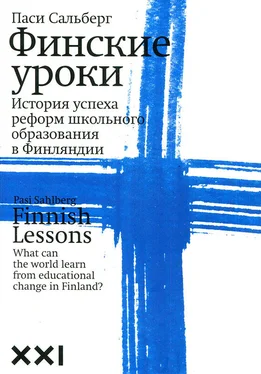
![Унелма Конкка - Волшебный короб [Финские народные сказки]](/books/28782/unelma-konkka-volshebnyj-korob-finskie-narodnye-sk-thumb.webp)





